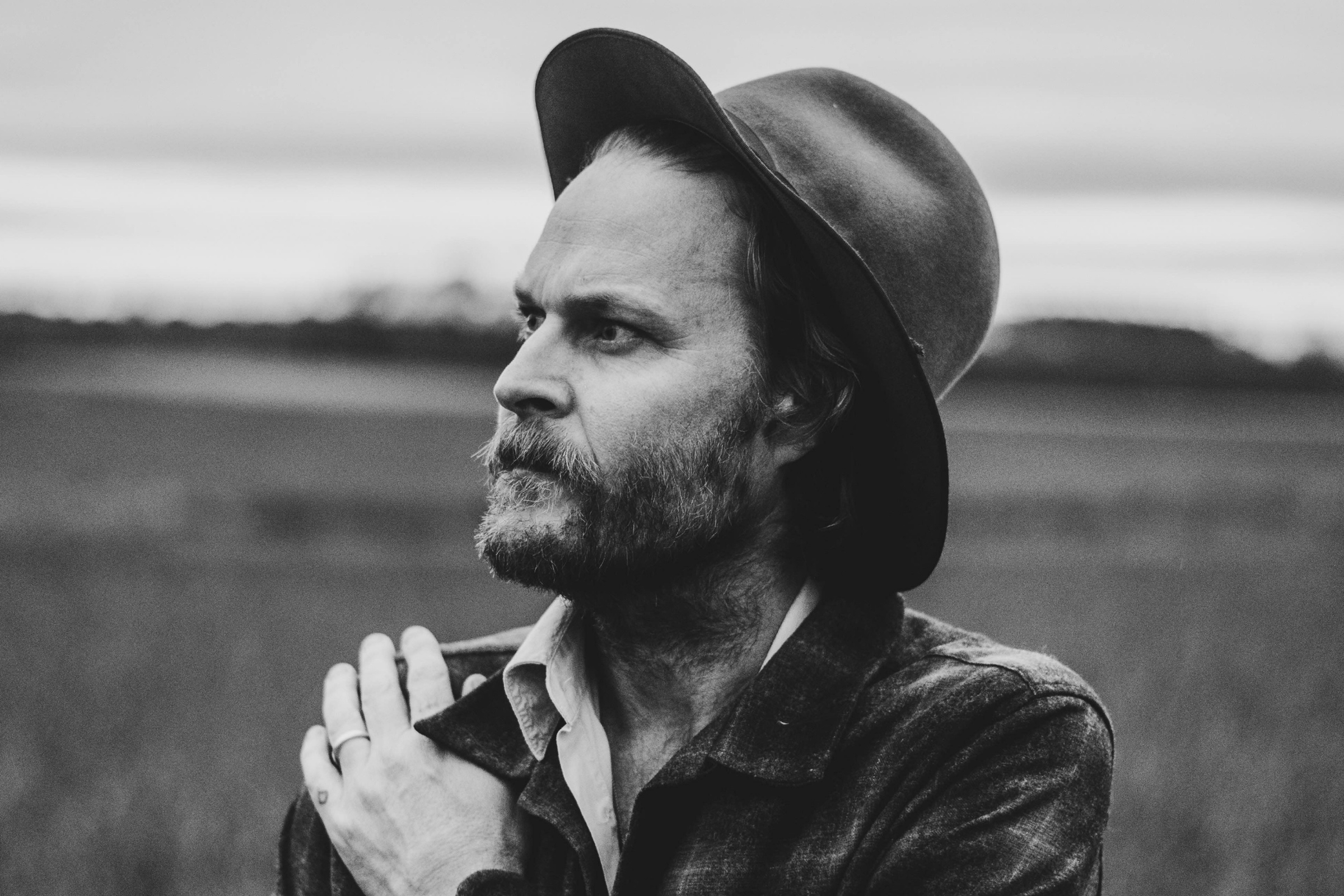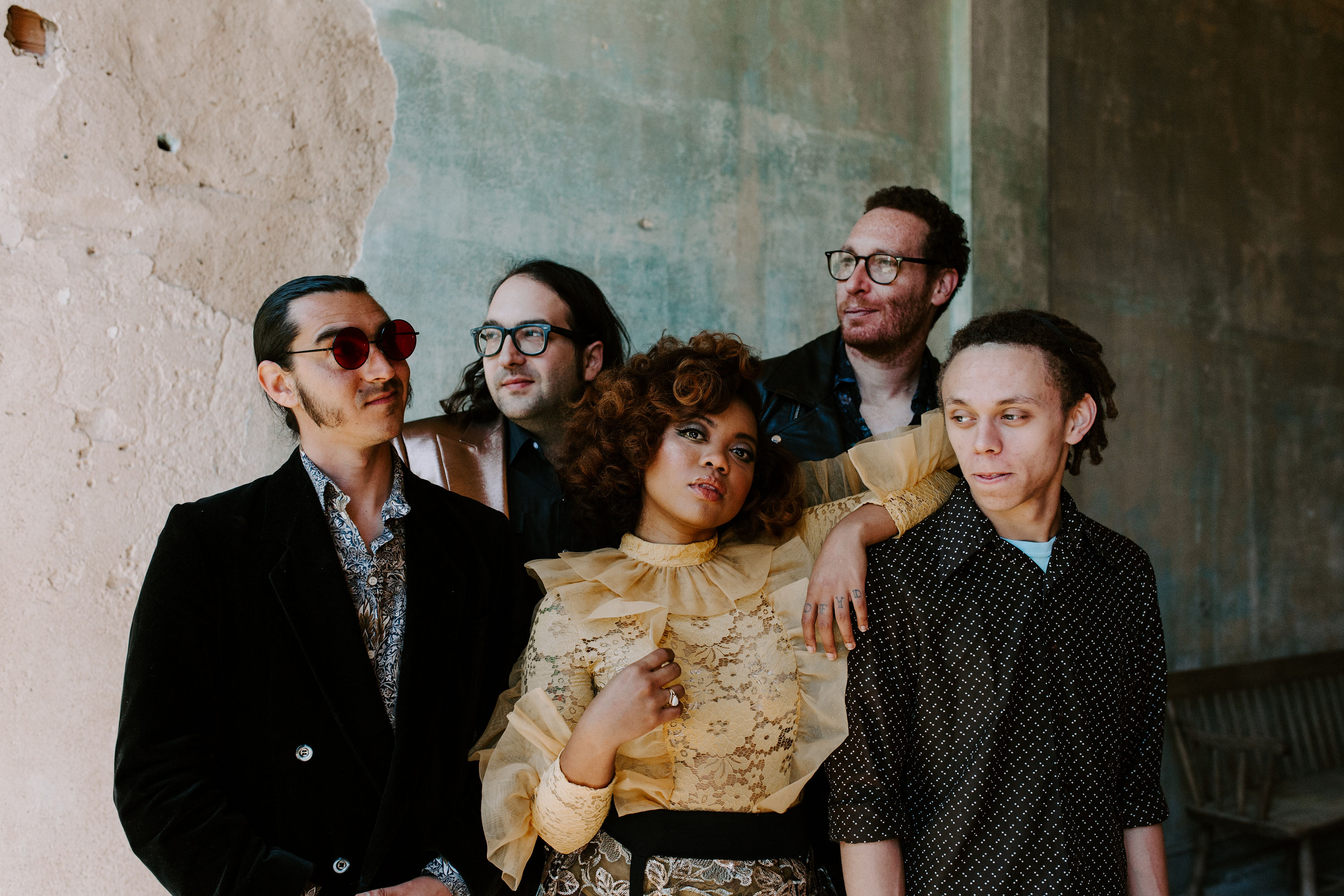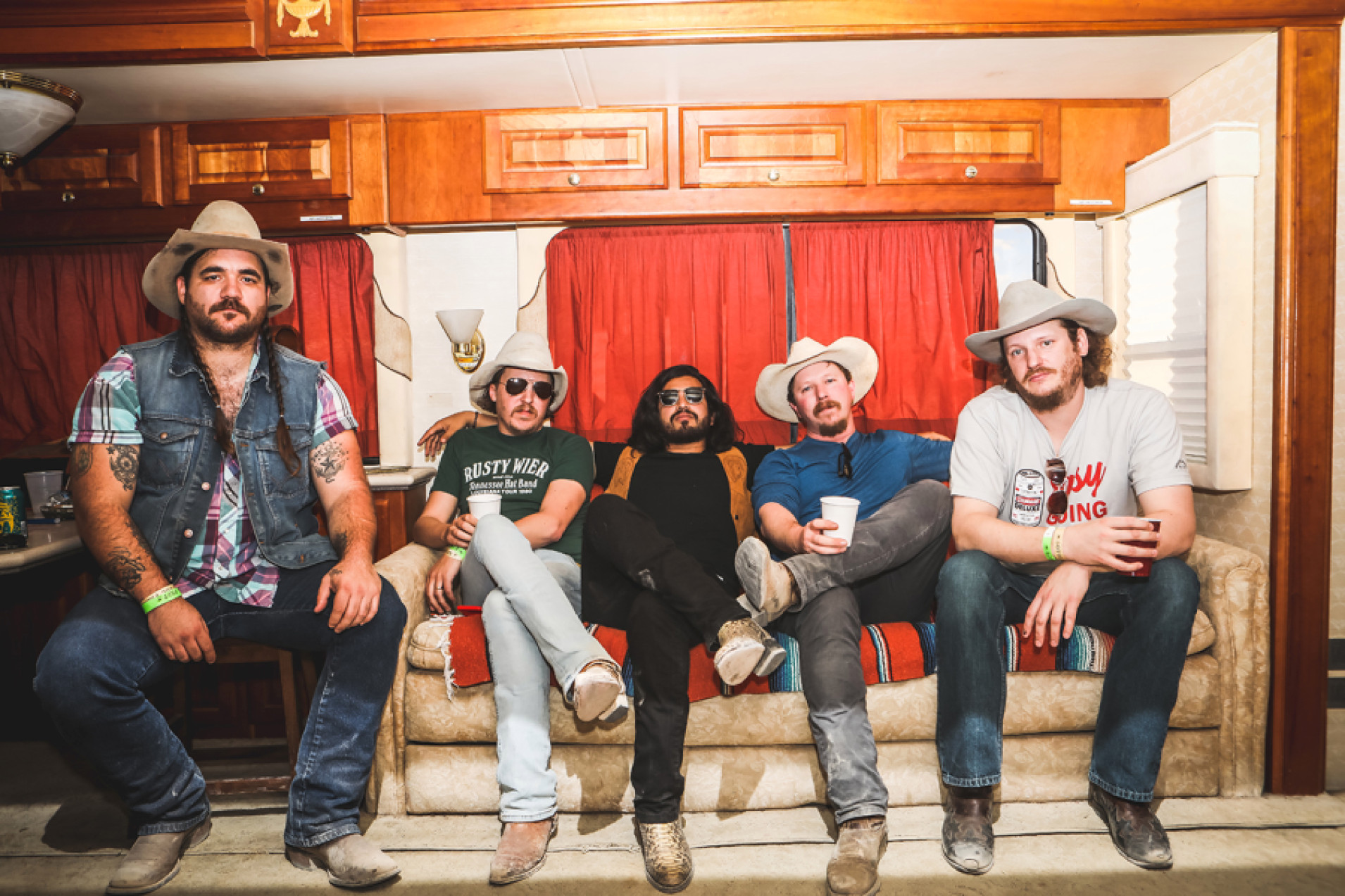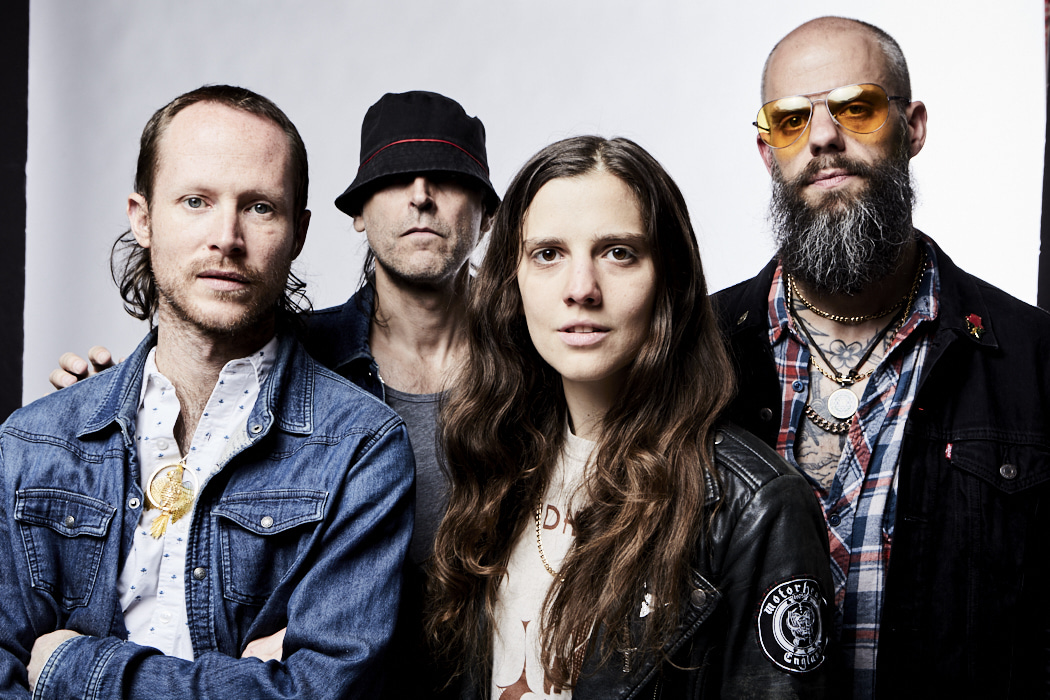Le Butcherettes set to make first visit to Birmingham
Teresa Suarez Cosio is Teri Gender Bender, the frontwoman of the Latino punk band Le Butcherettes. Formed in Guadalajara in 2007, the band has toured with Flaming Lips, Deftones, The Dillinger Escape Plan and Mars Volta and opened for Jack White’s Dead Weather and the Yeah Yeah Yeahs. In February, the band released its’ fourth full-length studio album, bi/MENTAL. The band has developed quite a reputation for its’ expressive stage show.
While she and her bandmates are all Latino, Teri was born in Denver, Colorado. She moved back to Mexico as a teenager and it was there that she finished high school. Her dual citizenship has given her a unique perspective. Before her band’s first visit to Birmingham, she spoke about the relationship between her two native countries, her introduction to music as a child and about working on the new record with Jerry Harrison of the Talking Heads.
Your first experience with music came when you had a recurring dream about playing guitar as a child. You then talked your dad into buying your first guitar. How did that play out?
I’ve always been a very vivid dreamer; I’ve always had horrible nightmares. But this one stood out to me. I would find this beautiful acoustic guitar and I would strum the strings, but they would melt, so I wouldn’t get a good strum; I couldn’t get that tension out of them. That was how it began; it would happen over and over again. I wouldn’t get the satisfaction of getting that strum. Every time in real life that I would find rubber bands or anything that would simulate strings, I’d try to play notes. I saved up and with the help of my dad, we got an acoustic guitar and the dream stopped.
Another recurring one also has to do with strings; it’s a ball of yarn. Maybe in a past life I was a cat trying to undo a knot. [laughs]
Do you still have that one?
Yeah, that one is still a very constant one. It’s very surreal because I’m trying to undo this giant knot, and during the process, I hear my mother’s voice in a gentle whisper saying, “It’s gonna be alright” but it’s in Spanish, “Va a estar bien.” And finally, I’m just about to undo the final knot and I wake up with this sudden feeling of euphoria. [laughs] And no, I don’t do drugs.
When you got that guitar and the dream ended, did you begin writing songs at that point in your life?
Immediately. Even before the guitar, I had a tape recorder and I would always do little acapella melodies; I’d even get my brothers to sing with me. With the guitar, it was like, “Okay, now I can fill up the emptiness of just the vocal tracks.”
Around the same period of time, I was enrolled in a musical program at school where they let me play around with a violin. The school provided us with the violin, which was really cool because we didn’t have that much to pay for instruments.
The new record, bi/MENTAL, has a very specific, interesting way that the track titles are stylized. What was the aim?
It definitely comes from the upbringing in my family. I think it also applies to Marfred [Rodriguez-Lopez, bass] y Riko [Rodriguez-Lopez, bass and guitar] y Alejandra [Robles Luna, drums] because their lives have been extreme opposites. We were raised in Latin cultures where at home, there was a lot of violence; at least coming from my side of the story. But once we were out in public, we would try to hide that shame and the abuse. We would hide it by overdoing subservience and by pleasing strangers more than the inner family. We’d be woken up in the morning by my mother’s soft, whispering voice; again the soft, whispering voice, “Okay, it’s time to get up,” and within that same sentence it would be [shouting], “It’s time to [expletive] get up!”
There were always two extremes and there was a constant battle to find some common ground and some tranquility. I think that had a lot to do with it. But also, it’s about the division; feeling disconnected from other personalities of your own and of your loved ones. There’s struggling to come to terms with that and understand, because if you do one day, you’ll see the words put together and that will form a whole different meaning.
Jerry Harrison [formerly of Talking Heads] produced the record. How did you make that connection and what was the experience like?
For starters, I’m a huge admirer; a fangirl from hell of his production skills, his artistry and as a human being. He went out of his way to let me know, “Hey this is my record as well. I love this record just as much as you guys.” He gave us a lot of freedom to be able to explore the potential of these demos that I did in my house when I was going through a very dark time and gaining closure from feeling rootless and in mental distress. In the end, I connected with a whole new family; they may not be in your bloodline, but it’s a whole new adopted family.
We crossed paths with Jerry because our managers are friends. It’s a small world. My manager, Andy, contacted his manager, Sean and said he should check out these demos. He told him, “Teri, she’s a big Talking Heads fan. Bring it up to Jerry.” So he brought it up to Jerry and he actually knew of the band and he was onboard, basically from the get-go. He was like, “Yeah, I want to work with them.” It was really cool of Jerry to even be open to it; it had been a while since he had produced a band.
I think he actually had a co-write on it. What was that creative process like?
In July, there was two weeks of pre-production. I came up to the studio with 60 demos, and those first two weeks was just going through all of them. Listening, organizing, compiling all of the demos to see which would benefit what project. And that helped a lot, because he said, “Oh, these songs may not fit the record, but these could be a solo project.” And I had never even considered that, so he put that idea inside that [expletive] and now I’m all ambitious and [expletive]. [laughs]
Once we picked the songs that we thought were strongest for the band, and since all of those came from that same period, there was basically the same emotion; almost like a story on accident. It was from that same period when I mentioned that I was going through a dark time. When the band came, we learned the parts from the demos, and in post-production, I played around with the mellotrons. Jerry helped refine them to a point of acceptability. Maybe in the demo, I didn’t have a bridge; verse, verse, verse, verse, verse, chorus. At the end. Jerry said, “Hey, explore this bridge.” So there were some songs where we wrote a bridge together. And I was like, “Damn! I’m writing with [expletive] Jerry Harrison.” That was not planned for at all; so that was really cool. He played on it. He also recorded piano parts and guitar parts. He even let us use his guitar that’s the acoustic guitar in Stop Making Sense at the beginning; that was David Byrne playing it. That was really cool.
I’m sorry. I’m in shock, still. It’s like, “Whoa! That was really trusting of him!” I know people that are very OCD with their instruments.
You mentioned that Jerry suggested a solo project. This kind of is a solo project, isn’t it? You’re really the only original member. How is that structured?
It’s not a solo project, because even thought they are my songs, all of the lineups that I have played with have put their own fingerprint on it. They have added an improvisation that came from the spirit. I believe that they tapped into something that only they could tap into. It helps me to see the band take on different transformations, like Mystique from the X-Men.
If it was a solo project, I think I’d be more like, “No improvisations! It has to be solely, exactly the way that I envisioned.” With the band, it takes on a collaborative form. This part of the writing process; writing with Jerry or Elvin Estela who collaborated with us on the song “strong/ENOUGH” or Marcelo Rodriguez-Lopez, who is one of the brothers of Marfred y Riko, who collaborated on one of the versions of “struggle/STRUGGLE.” I want it to be even more collaborative. It’s slowly letting go of that ego. [laughs]
Solo projects enable the ego, and I’m scared of that.
It’s easier to hide behind a band name…
Oh, yeah. Without a doubt. Definitely.
You have dual citizenship. The relationship between your two home countries has been a big topic of discussion in the past few years. How do you feel about how that is going?
Whether I want to admit it or not, it affects all of us and it definitely influences the new record. That’s always been our life; at school, feeling shameful of coming from Latin roots, seeing my parents have to struggle all of the time with racism and sexism at work and then moving back into Mexico. It was classist and there were all of these corrupt problems and all of these third world issues. Which now, thankfully, it isn’t considered a third world country anymore. We’ve had a lot of progress.
These issues have always been present. It’s not something new. I’m happy that it is being brought out much more into the public eye. Someone from Ohio may not be as aware of Mexican culture or even be able to tell the difference between Argentines or Chileans or Venezuelans. I’m just happy; the silver lining is that there’s more youth talking about it and that they have become politically aware of things that [make me angry]. [laughs]
Do you still have family in both countries?
Oh yeah, it’s divided. Not everyone in my family has the luxury that I have. I was born in Denver, so that gave me a free pass. I’m what Trump would say is an “anchor baby” [laughs] But I do have the privilege to be one. I’m proud of it. My grandparents, for example, they can’t come to the States. I go visit them a lot, which is great for me because it keeps me grounded with my roots; constantly going there and living like a gypsy, going back and forth. It’s a never-ending struggle with the paperwork. The Latinos in the band; some of us weren’t born in the States. It’s pretty crazy. Tiring.
You mentioned that the silver lining is that the youth of America are more aware. Do you think those people will grow up with a different worldview than their parents?
It’s like a pendulum; we’ll go through a gold rush of wonderful, intellectual prosperity and richness, but then, probably again, we’ll go back to the olden times and we will regress. Right now, we’re going through regression again, but out of this regression, it’s progression. [laughs] I feel like I’m rhyming.
At least in my bubble, we speak Spanish constantly, because everyone in this band is Latino. On this run, our tour manager is from Buffalo and Oklahoma, and he doesn’t know a lick of Spanish, but he was very open-minded about it. Fifteen years ago, him or someone from his background would have maybe felt a little intimidated. “Hey are you guys talking [expletive] about me?” Fifteen years ago, when we first started traveling in the States, there was always an issue with my parents when they would try to speak English. They’d give us funny looks. It’s something new for a lot of people. And I guess that’s how it was back in the day when you had ships going to different lands and seeing different types of people that didn’t look like them. “I’m offended” or “I wanna go explore.” It’s either one or the other.
Le Butcherettes come to Saturn on Wednesday, March 6. Doors open at 7 p.m., and the show begins at 8 p.m. Stars at Night and Nowhere Squares open. Tickets are $12.








